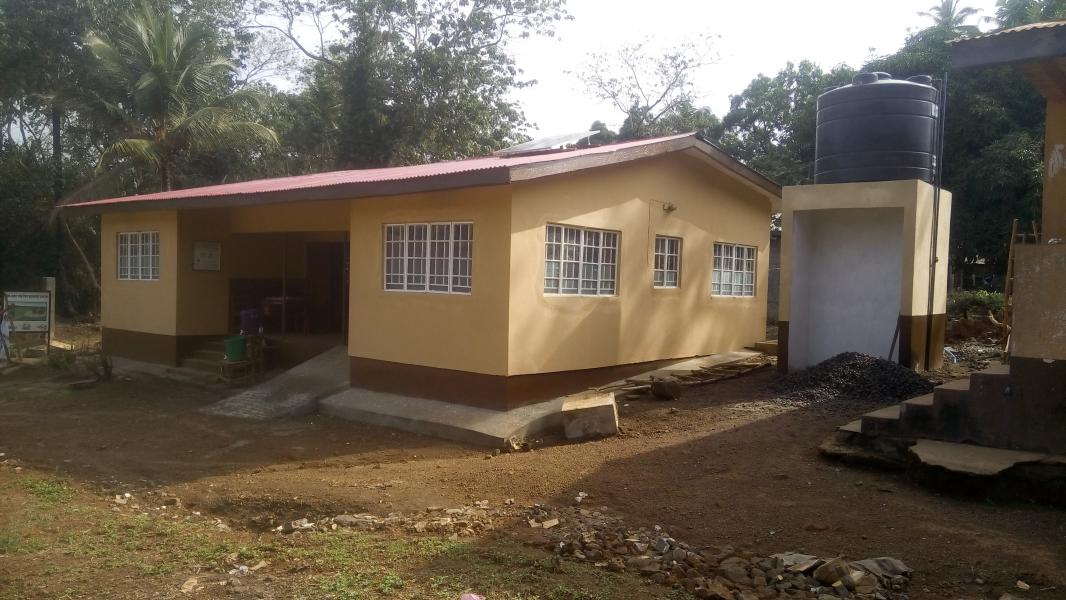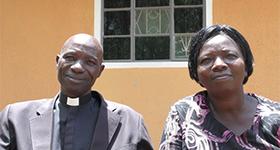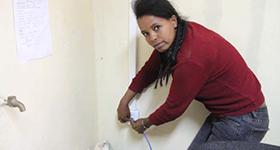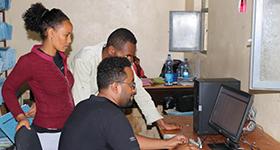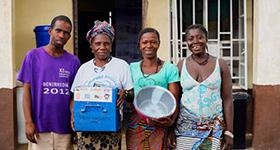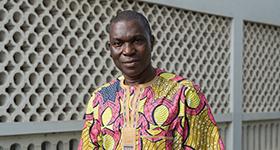Background
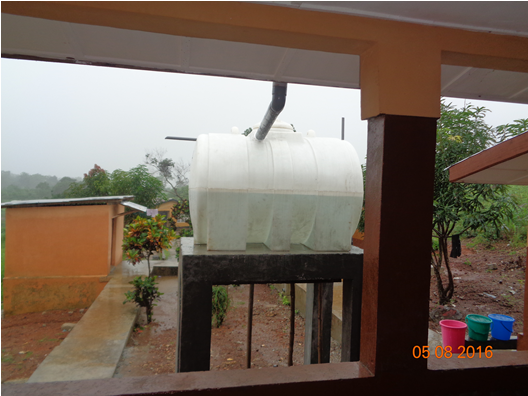
A rainwater harvesting system has been installed at the Tokeh MCHP. Photo credit: Wesley Wrightson
The fragile health care system in Sierra Leone was severely impaired by the Ebola virus disease (EVD) outbreak in 2015–2016. One of the biggest challenges throughout the outbreak was a lack of water and sanitation, which led to poor implementation of infection prevention and control (IPC) measures at health facilities. In the post-Ebola context, as the country moves forward with its Health Sector Recovery Plan, water, sanitation, and hygiene (WASH) is a priority.
With support from the United States Agency for International Development (USAID), the Advancing Partners & Communities project worked with Centers for Disease Control and other partners in supporting the Ministry of Health and Sanitation (MOHS) to develop the national IPC policy and guidelines. The project is assisting 100 health posts in five districts to upgrade health facility infrastructure to increase access to water and ensure compliance with the WASH standards and IPC policy/guidelines.
Two of the 100 targeted facilities are Sussex and Tokeh Maternal and Child Health Posts (MCHPs) in the Western Area Rural district. They provide a range of reproductive, maternal, newborn, and child health services to a total catchment population of 8,671 people. Open around the clock, the two MCHPs offer free health services to pregnant women, lactating mothers, and children under five years of age.
Every day, approximately 10 people are treated at each facility, and every month, an average of 20 children a month is born. Unfortunately, both MCHPs have lacked access to safe water and had other problems such as no appropriate area for waste management and poor infrastructural conditions, including leaking roofs, which have hindered their ability to treat patients.
Intervention
As part of its work to strengthen reproductive, maternal, newborn, and child health services in the post-Ebola context, the project is working to improve the facility infrastructure at the Sussex and Tokeh MCHPs, with a special focus on ensuring access to water 24/7 and compliance with IPC guidelines.
Before the Advancing Partners and Communities intervention, the two MCHPs lacked continuously running water, necessary waste pits and incinerators, functioning pit latrines, and an intact roof. The delivery rooms were small and did not provide immediate access to the handwashing, toilet, or shower facilities.
In cooperation with MOHS and Save the Children (the lead implementing partner in Western Area Rural), the project conducted significant WASH/IPC rehabilitation work in the two facilities. They extended the labor room to include a toilet and shower; rehabilitated outdoor toilets and showers; set up permanent indoor and outdoor handwashing stations; constructed incinerators and pits; renovated building-integrity infrastructure; and built a new roof.
At the Sussex MCHP, the project ensured the facility’s hand-dug well was rehabilitated and covered so that the water doesn’t get contaminated, and added a piping system to deliver running water to the facilities. New sinks and toilet were placed in the labor room.
The project plans to construct a well for the Tokeh MCHP. In the interim, a rainwater harvesting system has been constructed to capture rainwater through the facility’s gutters, from which it is channeled to a 2,500-liter storage tank. The tank is connected to the maternity ward bathroom, which allows the sink to receive water to ensure cleaner and safer deliveries.
To complement the WASH/IPC rehabilitations, the project is supporting health worker training in maternal and child health interventions and IPC. At the community level, the project has revitalized facility management committees (FMCs), which link the facility and the community. FMCs ensure health facility operations and maintenance, manage issues between the community and the facility, and develop facility improvement action plans and maintenance plans based on facility priorities and community feedback.
“We used to have to walk far for water from a community tap which we would have to refill many times a day, just to wash our hands. Now with the rainwater service, all the women visiting the facility have water to clean their hands, their faces, and their bodies.” -Ms. Umu Sesay, maternal and child health aide, facility in-charge.
Outcomes
The combination of the health worker capacity-building activities, FMC support, and the facility WASH and IPC rehabilitation has made health workers at the two MCHPs feel more confident about providing services. Preliminary reports from staff indicate that the number of patient attending daily is steadily rising.
The Tokeh and Sussex MCHPs are just two of the four priority sites in the Western Area Rural district that have been renovated through the Advancing Partners & Communities project.
Before & After
Tokeh MCHP
The Advancing Partners and Communities project upgraded the outside pit latrine into a flush toilet, extended the labor room to provide a toilet and washing facilities, and constructed an incinerator, as well as ash, sharp and organic pits. It also renovated the outside drainage structure, and rehabilitated the roof and other components of the health post.
View of the labor room in the health post with the added flush toilet, sink, and shower (after completion).

Front view of the pit latrine showing the extended shower facility (work in progress) and upgraded to include a toilet with an additional shower room, and outside handwashing facility (completed).
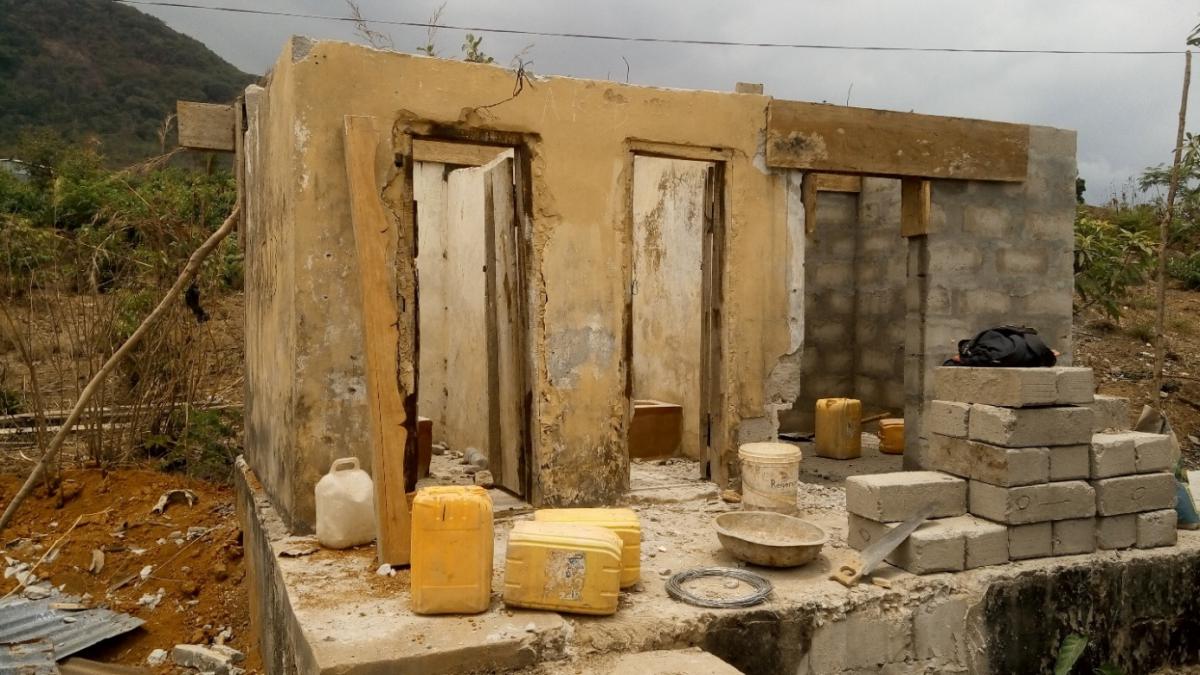
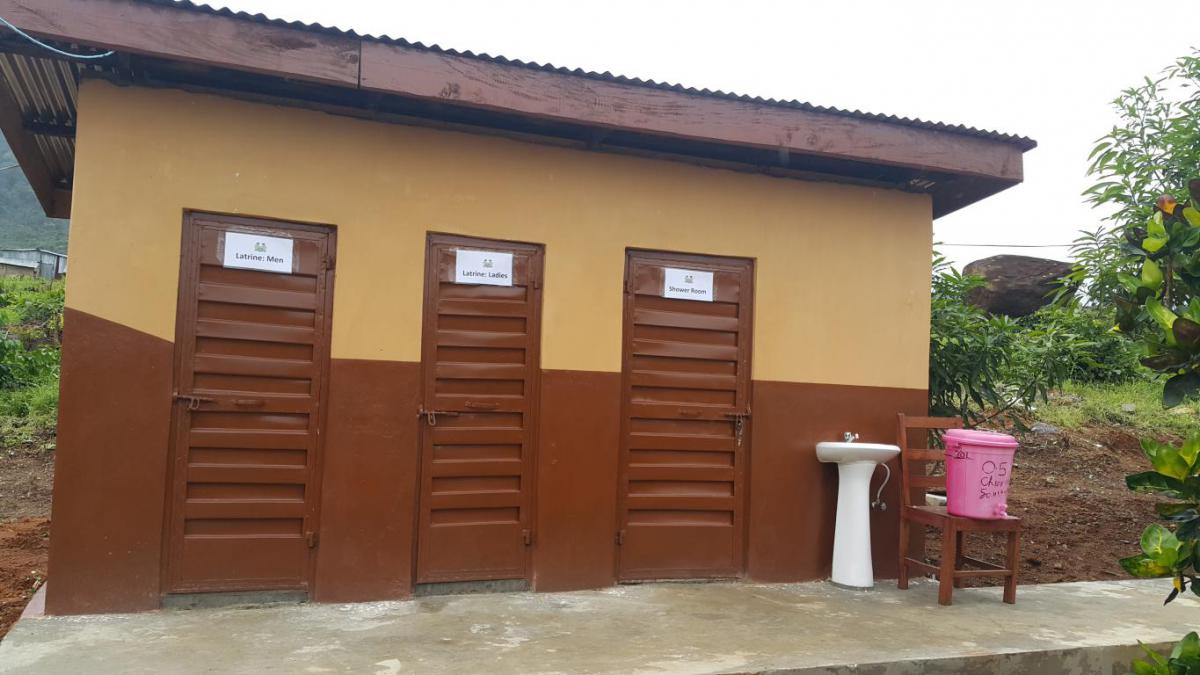
Sussex MCHP
The Advancing Partners and Communities project repaired and replaced the roof, walls, floor, and windows; constructed new organic, sharp, and placenta pits, as well as septic tanks for waste management; rehabilitated the hand dug well and built a water tower; and constructed handicap-accessible ramps.
The Sussex MCHP water tower and hand dug well; and extension of outside toilets of the Sussex MCHP (work in progress).
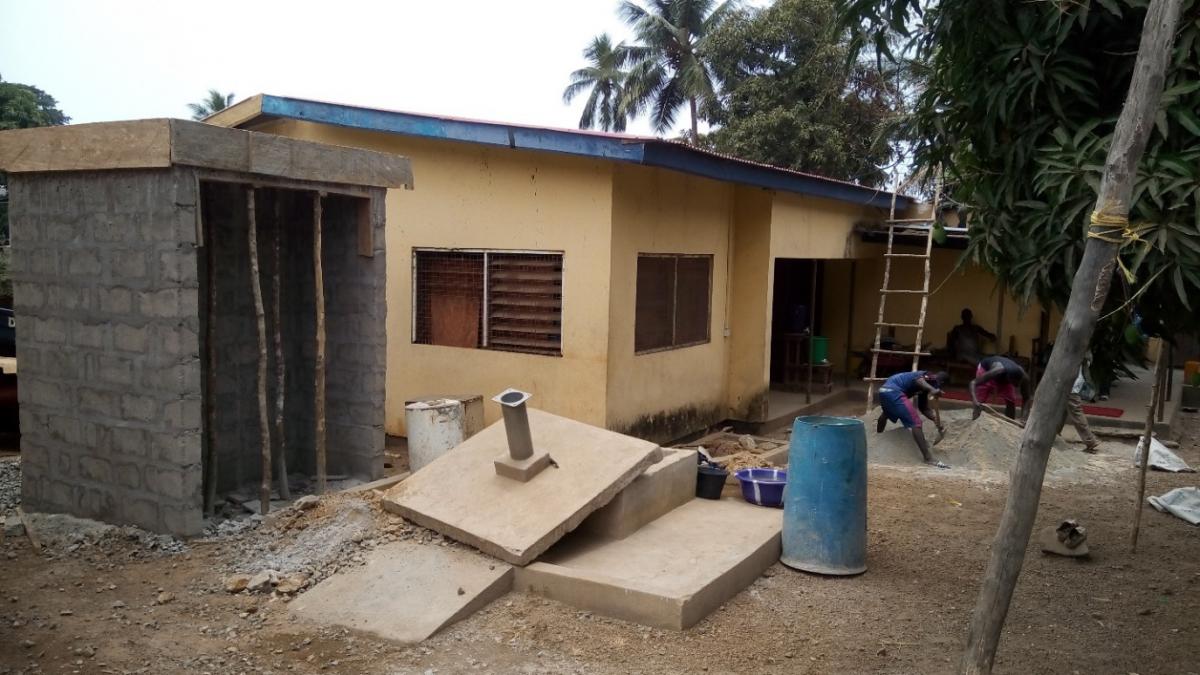
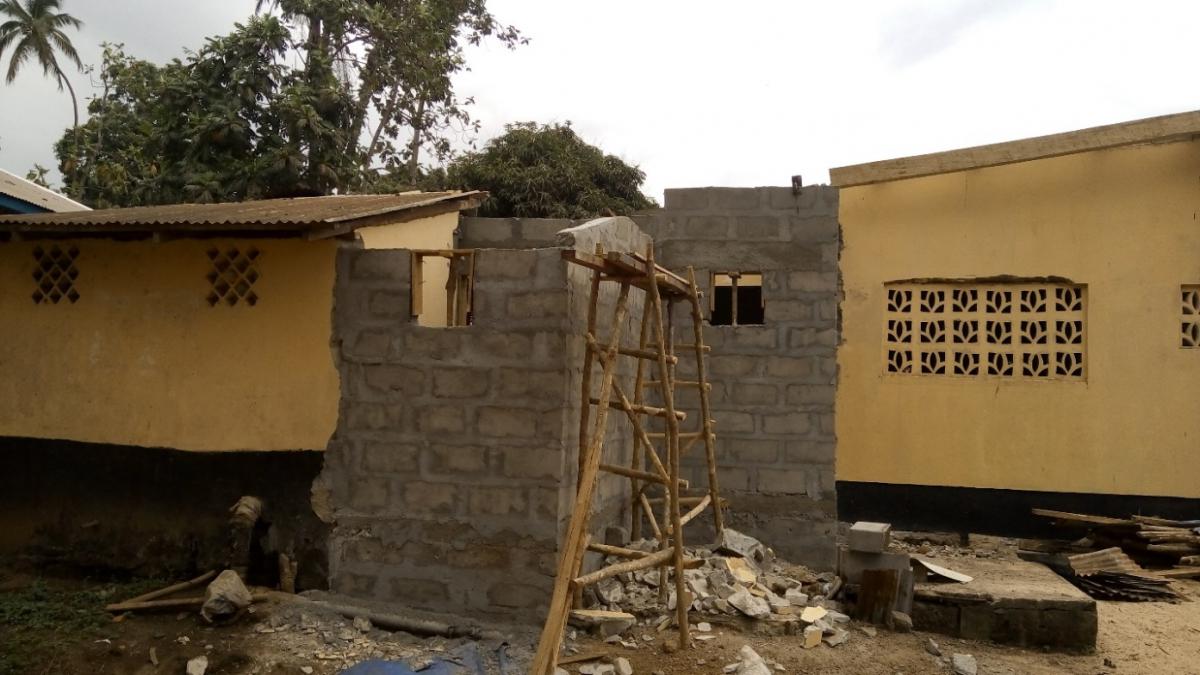
Right side view of the Sussex MCHP with a new roof and constructed water tower (completed).
